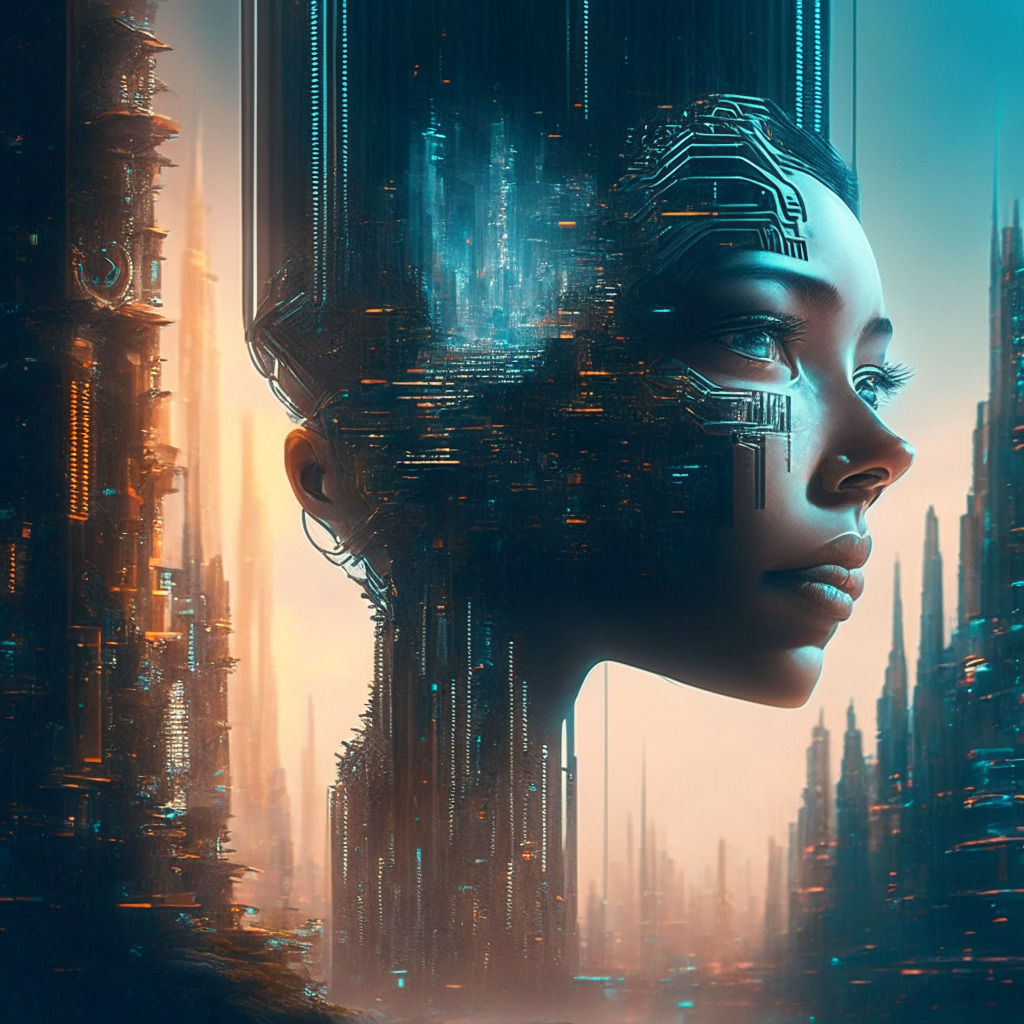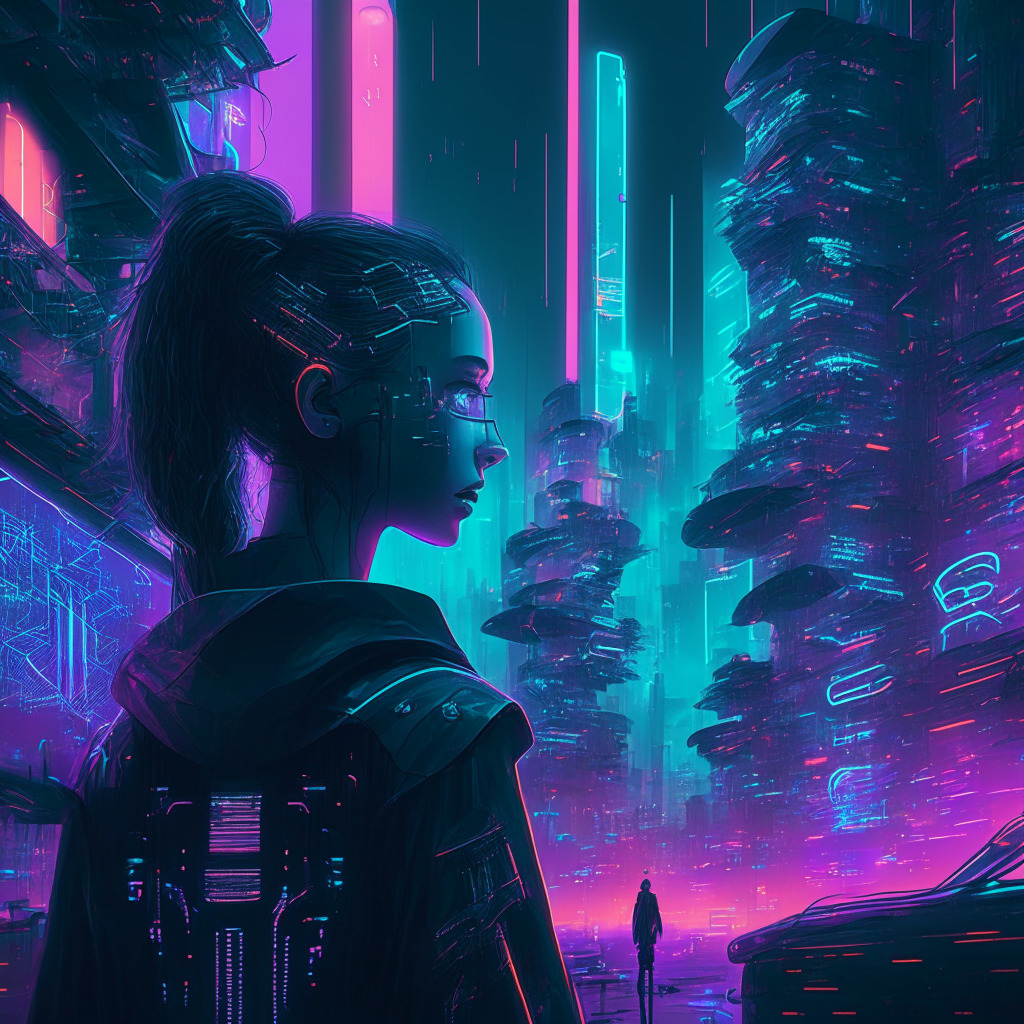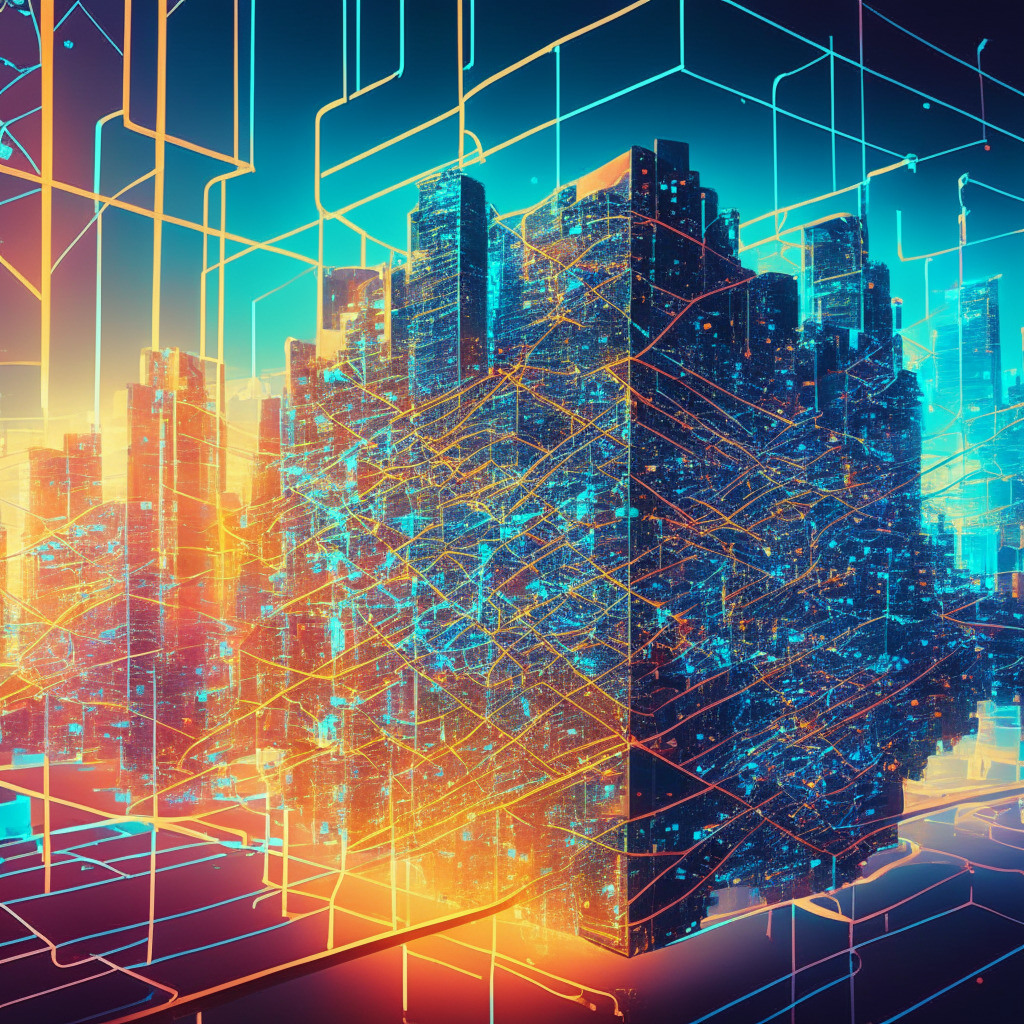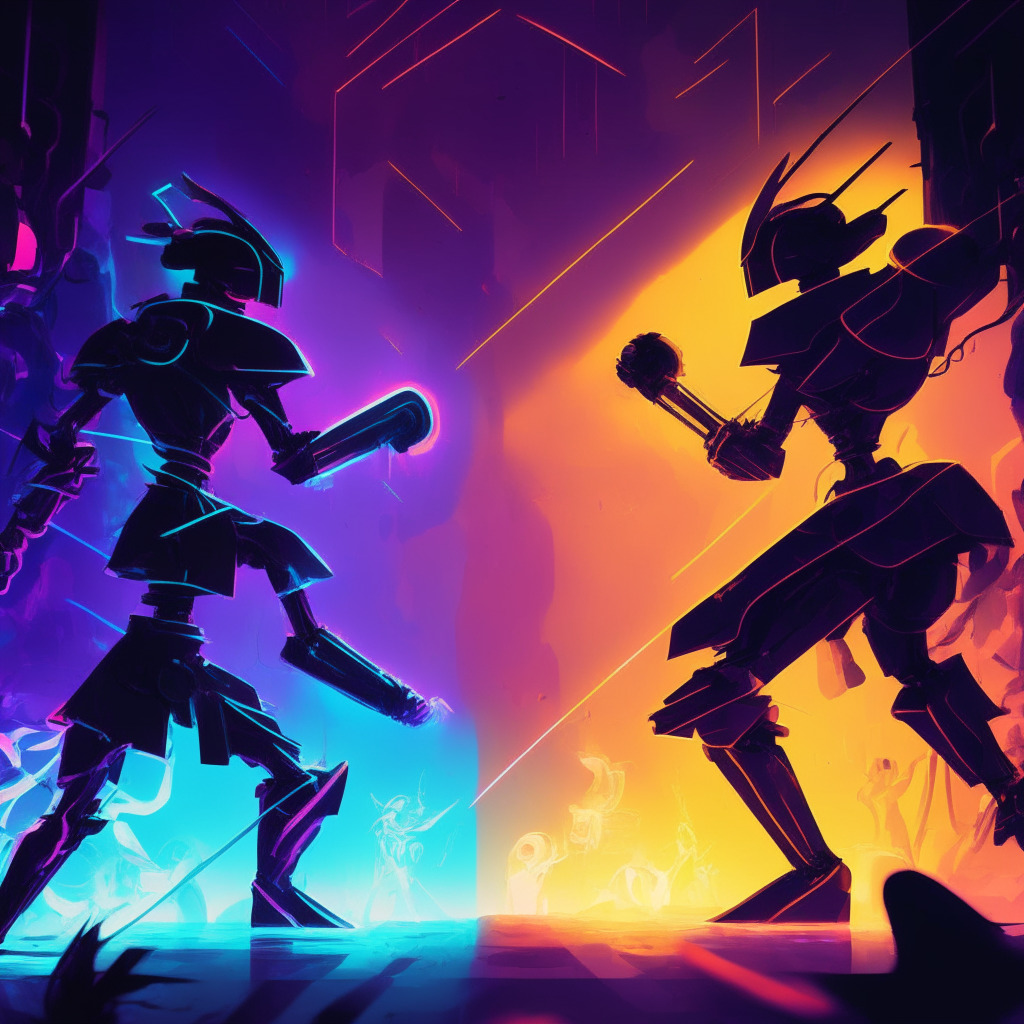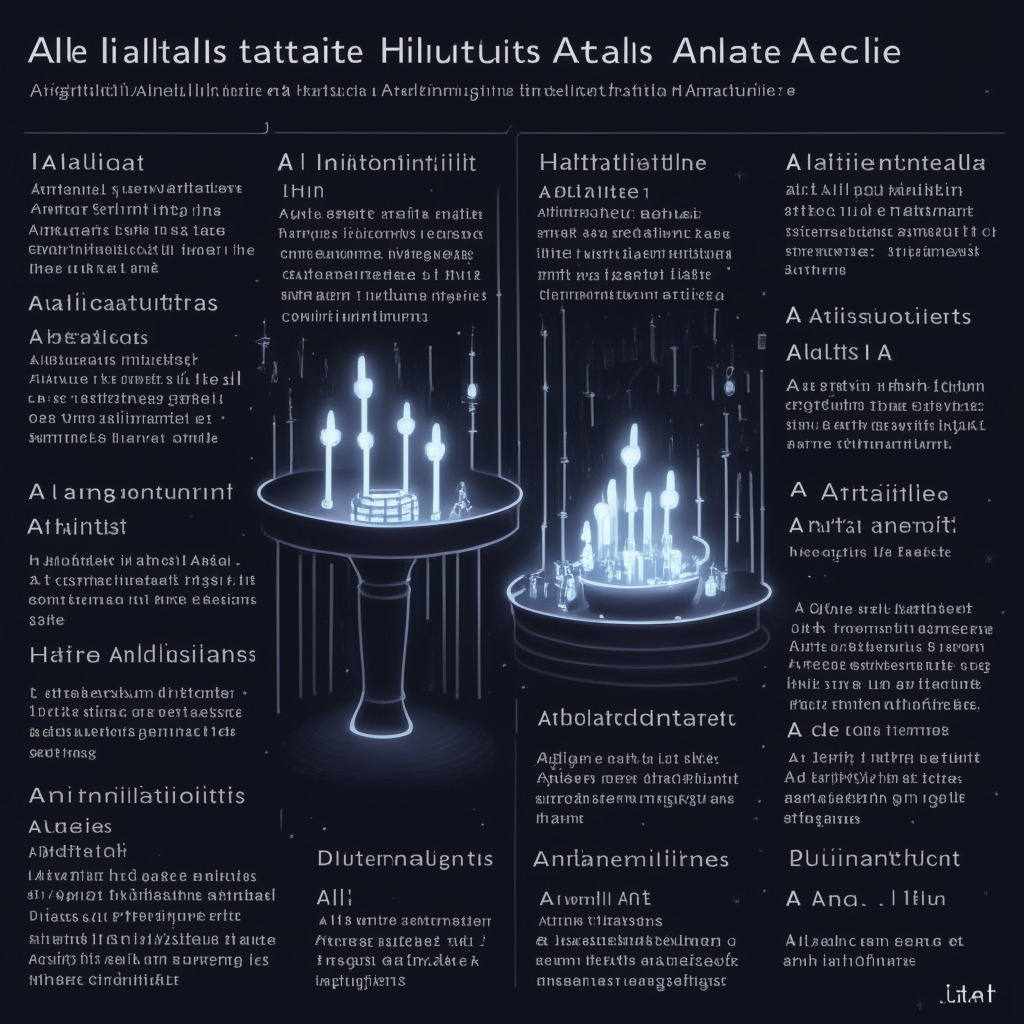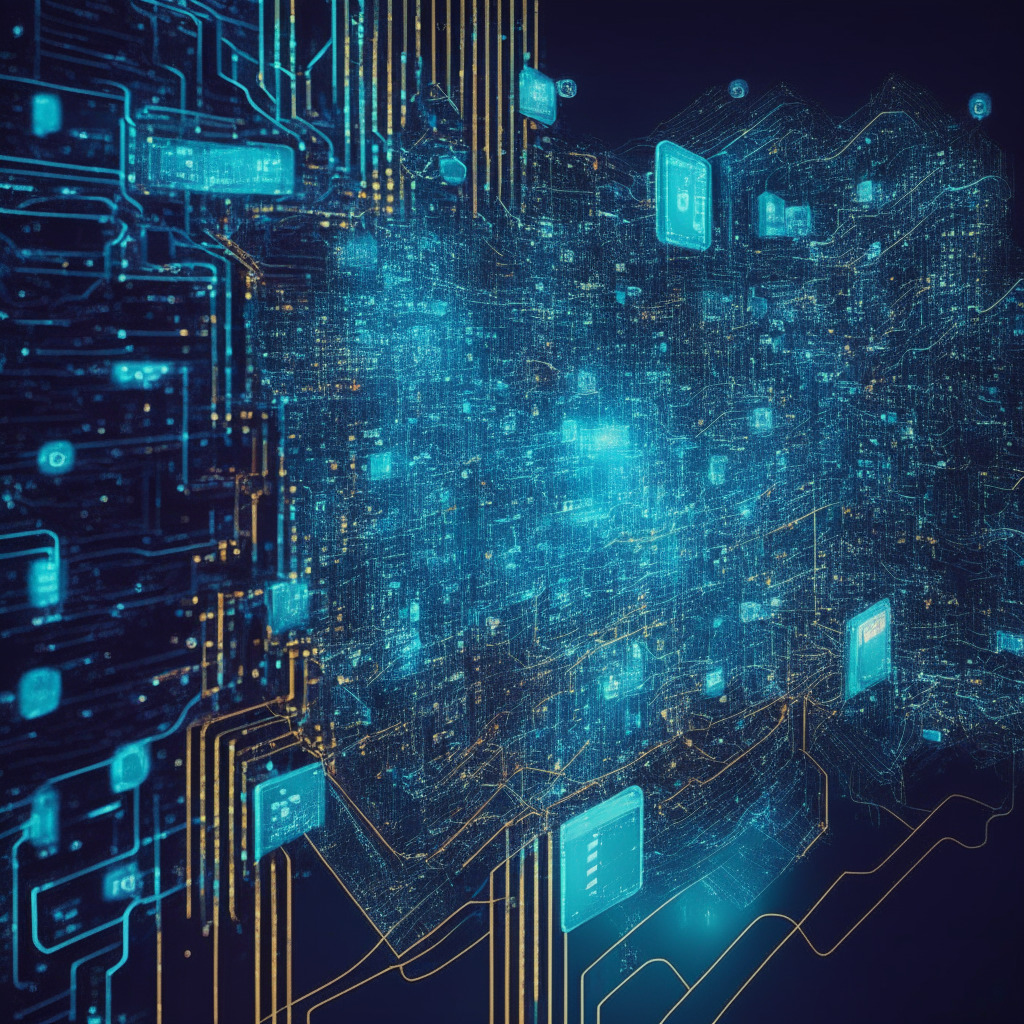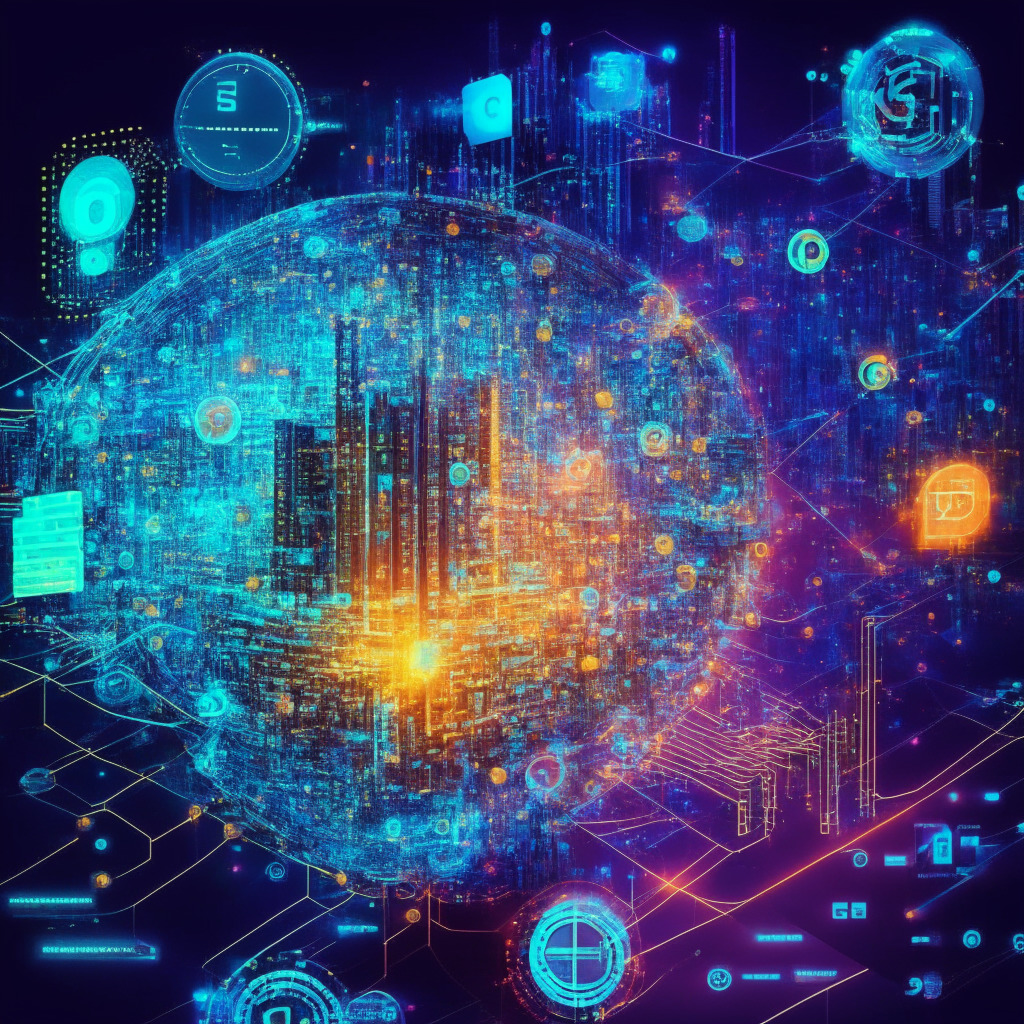“Elon Musk’s new venture, “xAI”, aims to unravel the “true nature of the universe”. The project, intending to collaborate with Tesla and Twitter, walks a thin line between ambitious innovation and ethical boundaries. Critics argue the potential risk of unchecked AI development, sparking a dichotomy of perspectives on AI’s future.”
Search Results for: Microsoft Power BI
Massive Funding of Inflection AI: Bold Leap into Large-Scale AI or a Potential Setback
“Inflection AI, having secured $1.3B in funding from industry giants, plans to construct a 22,000-unit NVIDIA GPU cluster for large-scale AI models. However, some suggest that technological limitations could make these models inefficient, advocating for smaller, target-specific AI models instead.”
The Candy Digital–Palm NFT Studio Merger: Fast-tracking Licensed NFT Projects or Pushing Cryptocurrencies into Dangerous Territory?
Digital collectibles giant, Candy Digital, and Web3 company, Palm NFT Studio, have unveiled a collaborative merger aimed to enhance digital interactions across varied fields such as sports and entertainment. The merging of these companies hopes to improve fan engagement through the creation of NFTs, providing an expanded platform for brands to connect with fans.
Amazon’s $100M Generative AI Center: Boosting Cloud Services or Raising Privacy Concerns?
Amazon’s cloud unit, AWS, invests $100 million in a generative AI center to enhance cloud infrastructure services capabilities and maintain market leadership. This move aims to bridge the gap between Amazon’s AI experts and clients seeking advanced technology applications, amidst rising competition from Microsoft and Google.
AI’s Impact on Translation Industry: Pros, Cons, and Future Developments
AI-powered translation systems like Neural Machine Translation (NMT) are revolutionizing the translation industry by offering speed, efficiency, and continuous improvement. Although concerns regarding limitations persist, advancements in AI technology promise more accurate and contextually appropriate translations in the future.
7 ChatGPT Alternatives: Exploring the Future of Conversational AI Platforms
Explore seven ChatGPT alternatives, including Google Bard, Bing AI, ChatSonic, You.com, Jasper AI, Perplexity AI, and GitHub Copilot, each offering unique features for different natural language processing tasks. Catering to diverse user needs, find the best AI-driven tool to suit your requirements.
Balancing AI Advancement: Unhindered Progress vs. Safe Development and Regulation
Marc Andreessen advocates for competition and open-source AI accessibility, while emphasizing collaboration between governments and the private sector to address AI’s potential risks. Balancing rapid development with judicious use and regulation is critical for AI’s future advancements.
Navigating AI’s Promising Future Amidst Deepfakes, Job Loss, and Singularity Risks
AI’s rapid advancement brings potential risks such as deepfakes, privacy invasion, job loss concerns, technological fallacy, financial market volatility, and the Singularity concept with ethical questions. Society must address these challenges to ensure a safe, responsible future.
AI-Designed Flat-Pack Sofa: Innovation vs. AGI Concerns in Furniture’s Future
The AI-designed, limited-edition flat-pack sofa by Space10 and Panter&Tourron revolutionizes furniture design, showcasing innovative, sustainable solutions. However, concerns about advanced AI systems like artificial general intelligence (AGI) demand proper regulation and striking a balance between technological advancement and precautionary measures.
AI Regulation Debate: Licensing Model Pros, Cons, and Balancing Innovation with Safety
UK officials propose licensing AI technology, similar to pharmaceutical or nuclear power companies, to regulate AI at the developmental level. The approach aims to address concerns about bias, discrimination, surveillance, and potential risks associated with AI technology.
Worldcoin vs Privacy Concerns: Can Iris-Based Crypto Secure Identities in AI-Driven Future?
Worldcoin, a cryptocurrency backed by OpenAI’s CEO Sam Altman, is powered by iris biometric features to ensure unique individuals via its “World ID” digital identity. Addressing privacy concerns, it aims to provide a secure, decentralized ID option in the AI-centric world, potentially redefining the global economy.
NVIDIA Hits $1 Trillion Market Cap: AI Boom Boosts Growth, But What About Data Security Risks?
NVIDIA reaches a $1 trillion market cap, with a strong focus on AI products and services driving its growth. As companies like Microsoft, Google, and Meta are anticipated to use NVIDIA’s AI technology, investors and crypto enthusiasts should remain vigilant about potential risks, data security, and ethical concerns in this ever-changing landscape.
Nvidia Surpasses Meta and Tesla: AI Boom Ushers in Golden Age or Pitfalls Ahead?
The rapid rise of Nvidia’s market capitalization and AI investment signals a turning point for the tech industry, transforming gaming through AI-powered tech like Nvidia Avatar Cloud Engine. However, potential consequences, ethical questions, and societal implications must be addressed alongside embracing AI-driven innovation.
Balancing Blockchain Future: AI Advancements, Regulations, and Risks in Focus
Microsoft President Brad Smith urges lawmakers and companies to establish regulations and risk management strategies for AI development, emphasizing the importance of corporate involvement and proposing “safety brakes” for AI systems controlling critical infrastructure.
OpenAI’s ChatGPT Joins AI Race with Internet Connectivity: Competing or Complementing?
OpenAI’s recent ChatGPT update introduces Internet connectivity, allowing the AI model to access real-time information during chat sessions. Now in direct competition with Google’s Bard and Microsoft Bing, ChatGPT’s new feature presents vast potential for users by searching the web for current information on various subjects.
AI Regulation: Striking the Balance Between Security and Innovation
In a Senate subcommittee session, OpenAI CEO Sam Altman testified before Congress, discussing the potential threats of generative AI models and the need for AI regulation. The speakers urged for immediate action, privacy protection, government oversight, and transparency. However, finding the right balance between controlling AI dangers and fostering innovation remains crucial to ensure a safe, responsible future.
Decoding Blockchain’s Future: Revolutionary Potential vs. Practical Challenges & Risks
In this article, we explore the future of blockchain technology, highlighting its potential to transform industries, improve transparency, and eliminate intermediaries. However, concerns about scalability, security, privacy, and regulation present challenges that must be addressed for successful integration into society.
Google Bard vs. OpenAI ChatGPT: The Battle for AI Chatbot Dominance and Future Implications
Google’s AI chatbot, Bard, challenges OpenAI’s ChatGPT with upgrades introduced at the Google I/O conference. Transitioning to the PaLM 2 model and offering different versions for various applications, Bard provides improved performance in translation and coding support. Despite ChatGPT’s current adoption advantage, Bard’s free availability may attract users.
Google’s AI Revolution: PaLM 2, Gemini, and the Future of Search Engines & Consumer Experiences
Google’s recent announcements at the annual Google I/O conference reveal AI-backed features, like the updated Pathways Language Model (PaLM 2), which improves reasoning, coding, and multilingual capabilities. Integrated into 25 apps, PaLM 2’s advancements signal significant changes in search engines and AI integration, with forthcoming Gemini offering even more advanced capabilities.
EY’s Ethereum Platform for Carbon Tracking: The Pros, Cons, and Future Implications
EY unveils an Ethereum-based platform, EY OpsChain ESG, aimed at tracking carbon emissions and carbon credit traceability for enterprises. The platform emphasizes sustainability and environmental, social, and governance measures, leveraging tokenized emissions inventory to enable transparency and progress measurement. However, blockchain’s energy-intensive nature and reliance on carbon credit tokens invite criticism and warrant careful analysis.
Chia Network Enters Web3 Gaming: Facing Giants and Redefining the NFT Landscape
Chia Network launched the Chia Open Digital Economy (CODE) framework, aiming to empower an open metaverse of games and applications with interoperable assets. Chia announced a proof-of-concept trading card game, ChiaTCG, embracing Chia NFTs and turning them into playable cards, showcasing the potential of NFTs within gaming.
Canton Network: Uniting Financial Markets, Privacy, and Blockchain Future
Canton Network, a privacy-centric blockchain project by Microsoft, Goldman Sachs, and other finance giants aims to offer an interoperable system for financial institutions. Starting tests in July, it targets synchronization of isolated financial markets, streamlining global trading and enhancing data privacy.
AI Race Intensifies: China’s Battle Against US Sanctions and Global AI Dominance
China is forging ahead in artificial intelligence development despite facing challenges due to US sanctions limiting access to advanced chips. Experiments show promise, and Chinese companies, including Alibaba, are creating innovative AI solutions, encouraging global competition and pushing the limits of current capabilities.
The Great AI Debate: Balancing Innovation, Risks, and Collaborative Safeguards
The meeting between U.S. Vice President Kamala Harris, President Biden’s advisors, and AI industry CEOs discussed potential risks posed by AI technology, emphasizing shared responsibility between governments and companies in risk mitigation. Topics covered transparency, safety evaluation, and protection from malicious actors. The Biden Administration allocated $140 million to National AI Research Institutes, and White House plans to release a draft policy on government usage of AI.
AllianceBlock’s NexeraID Joins W3C: Impact on Digital Identity and Decentralized Finance
AllianceBlock’s NexeraID recently joined the World Wide Web Consortium (W3C), working towards standardization of decentralized identifiers and verifiable credentials. This collaboration solidifies NexeraID’s commitment to web standards, empowering users to manage digital identities securely, fostering innovation, and driving advancements in digital ID space.
AI and Cryptocurrencies: A Seamless Partnership or Recipe for Scams and Control?
Crypto is the only form of money that artificial intelligence (AI) systems can incorporate, Erik […]






